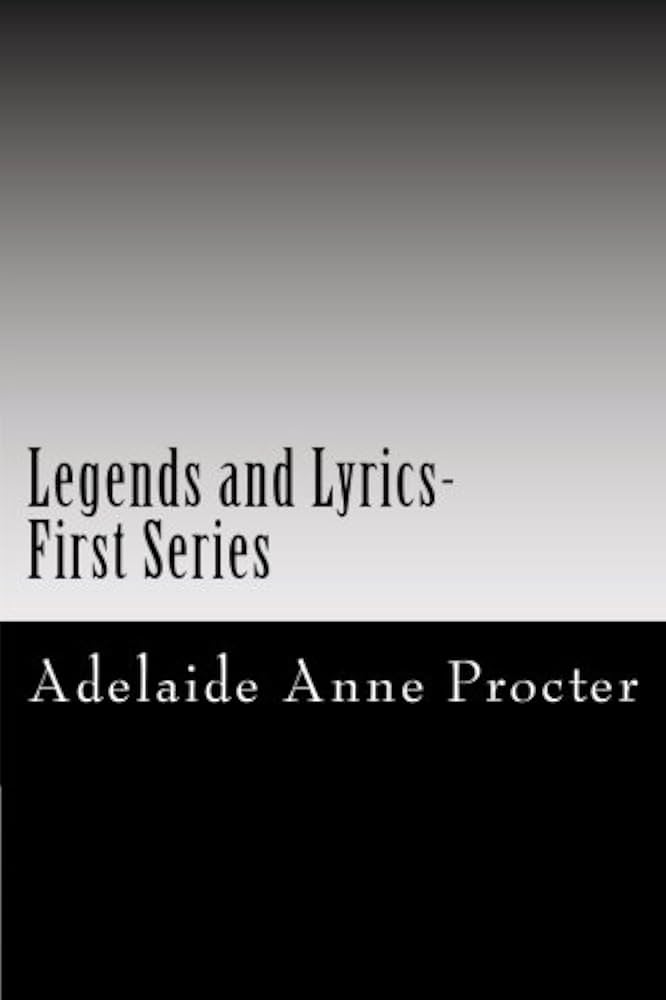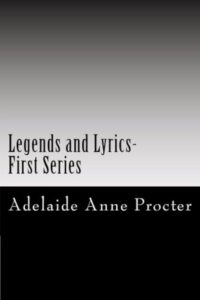AN INTRODUCTION BY CHARLES DICKENS
byIntroduction to Legends and Lyrics opens with a candid memory from Charles Dickens as he describes an unexpected yet deeply meaningful literary encounter. While managing the editorial duties of Household Words, he came across a poem so sincere and refined that it compelled him to request more from the unknown contributor, Mary Berwick. What he didn’t know was that behind the pseudonym stood someone already within his social circle—Adelaide Anne Procter, the daughter of his old friend Barry Cornwall. This reveal, made a year later, not only surprised Dickens but earned his admiration. Procter had not used her name to open editorial doors; she had chosen anonymity to allow her words to speak for themselves. Her decision was not driven by insecurity, but by integrity, rooted in a desire to be weighed fairly among other aspiring voices.
Dickens reflects on this discovery with a mix of professional respect and personal emotion. The honesty in Procter’s approach struck him as both rare and dignified, especially in a time when name and connection often held more weight than craft. He admired her resolve not to rely on established networks but instead to allow her work to earn its place. This narrative isn’t just a recollection; it’s a subtle critique of the literary world that often favored social familiarity over genuine merit. The story also serves to underscore Dickens’ own editorial values, showing his openness to unrecognized talent regardless of background. By including this account in the introduction, Dickens gently shifts the focus toward the principles behind the poems rather than simply their author. It creates a foundation of authenticity that shapes the reader’s engagement with the verses that follow.
In the following paragraphs, Dickens transitions from anecdote to biography, detailing Procter’s early life and intellectual development. Her birth on October 30, 1825, marked the beginning of a life rich in observation and curiosity. As a child, she was drawn not only to books but to the structures within them, enjoying puzzles in Euclid and learning languages with ease. Her interests, though wide-ranging, were always rooted in a deep empathy for others, which later surfaced in her poems. By the time she reached adulthood, she had already published a few early pieces in the Book of Beauty, though these were not the poems that eventually defined her voice. It was under the identity of Mary Berwick, and later in her full name, that her unique lyrical tone began to resonate with a broader audience.
Procter’s writing, noted for its emotional clarity and moral depth, aligned closely with the values of Household Words and All the Year Round. Dickens emphasizes this alignment not as coincidence but as evidence of shared sensibilities between editor and contributor. Her poems, often concerned with sacrifice, endurance, and the unseen struggles of everyday people, reflected the spirit of a publication dedicated to both storytelling and social commentary. Many of her verses brought attention to women’s roles, domestic hardships, and inner strength, making her voice particularly meaningful in a time when female writers still faced considerable limitations. It wasn’t just her talent that stood out—it was the sincerity of purpose behind her work. Her writing was not just art; it was a quiet form of advocacy.
By compiling her entire poetic contribution in Legends and Lyrics, Dickens ensures that Procter’s voice remains accessible and preserved, even after her passing. He notes how public response to her poems had grown steadily, a sign of the resonance her themes had with readers. In doing so, he does more than commemorate a friend—he validates a woman’s place in the literary canon through merit, not favor. This introduction thus stands at a crossroads of tribute and testimony. It reflects not only a personal relationship but a cultural moment where literary ethics, identity, and reputation were in constant negotiation. Procter’s decision to remain initially unnamed becomes, in hindsight, a powerful statement about authorship and the kind of legacy one leaves behind.
In closing this introduction, Dickens allows his admiration for Procter’s character to remain as present as his praise for her craft. He does not overstate her genius nor rely on sentimental overtones. Instead, he invites the reader to explore her work with the same openness that she requested when she first sent in her poem. Through this gesture, Dickens grants Procter the exact fairness she sought—a chance to be known not for her connections, but for her contribution. The collection that follows is not simply a memorial. It is an affirmation of how genuine voice, when left to stand alone, can still rise to be heard.


